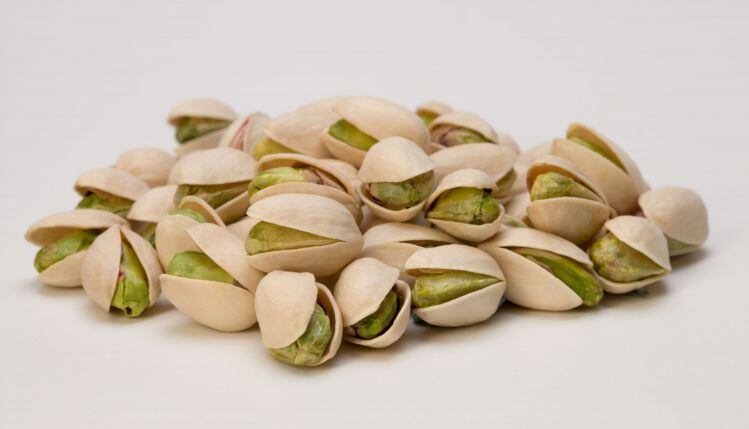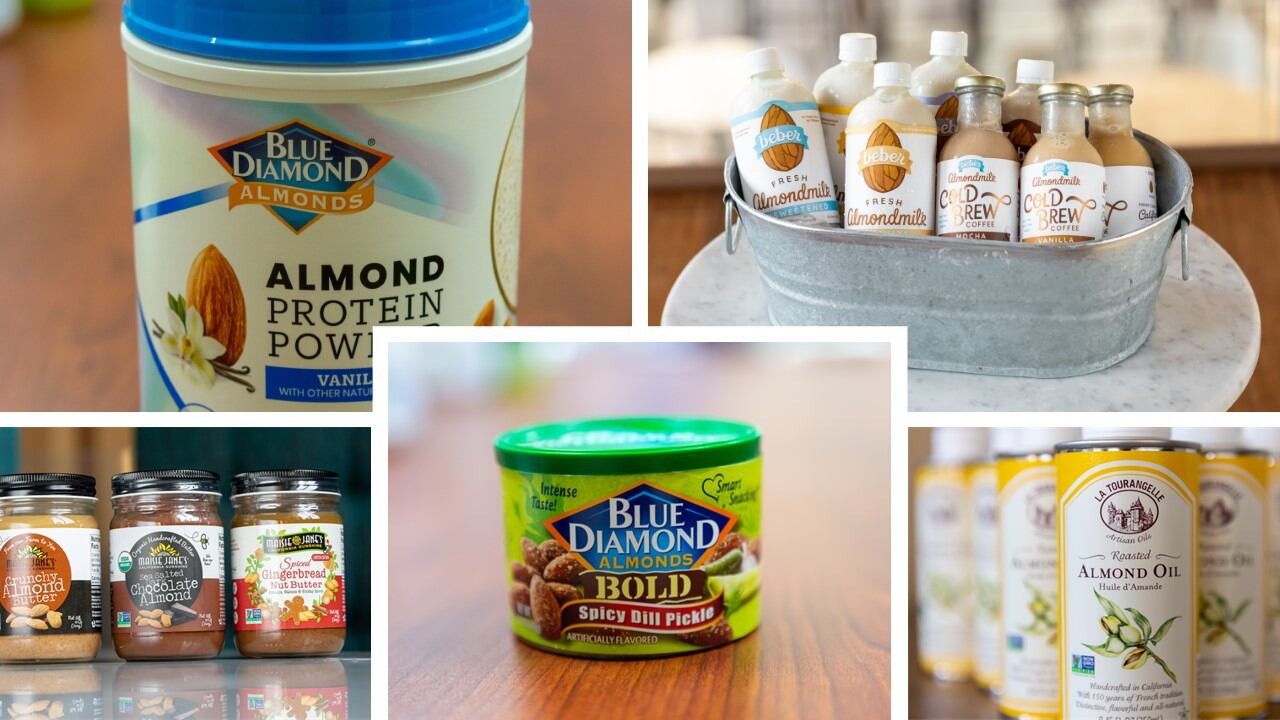Demand for pistachios – which are grown in the US (primarily California) and Iran - continues to exceed supply, although US acreage is growing rapidly, said APG VP of global marketing Judy Hirigoyen, with the vast majority of product consumed domestically going into snack nuts, although some emerging brands have developed novel applications from pistachio milk to pistachio butter.
“US pistachio consumption is growing at about 5% a year, but that number would be a lot higher [if more supplies were available to domestic buyers]; worldwide demand is so high that we don’t have enough to fully serve domestic demand," said Hirigoyen. "China and Europe are our top export markets and we’ve just opened up India as an export market."
She added: “The almond industry has a huge amount of product that they need to find a home for, but we’re just trying to grow enough crop to meet demand for in-shell pistachios.
“Each year we get more crop coming to fruition – and yields have increased exponentially, but we only started farming pistachios in California in the 1970s. Our role is to make sure that export markets are open for business; plus we work with some of the top nutrition research organizations around the world and promote their findings.”
Invitro studies suggest pistachios have exciting anti-viral and anti-bacterial properties
From a health perspective, pistachios – like all nuts – are increasingly viewed as a source of healthy fats and protein, with a growing body of research suggesting benefits to heart health, blood sugar management, weight management, sports recovery and eye health (pistachios contain lutein and zeaxanthin, which may reduce the risk of progression of age-related macular degeneration).
However, new in vitro data published by Italian researchers in the journal Plants suggests that US-grown pistachios also contain polyphenols that exhibit “remarkable inhibitory activity against HSV‐1” (which causes oral herpes and is responsible for cold sores and fever blisters around the mouth), although further studies are needed to validate the findings in humans.
The study - funded by American Pistachio Growers and a grant from the University of Messina, Research & Mobility 2016 Project – concluded that pistachio polyphenols “could become great candidates for the development of novel topical or oral drug formulations for the treatment of HSV‐1 infections… as well as a novel strategy to overcome problems related to drug‐resistant strains.”
It follows earlier research indicating (click HERE and HERE) that pistachios could also stop the growth of the antibiotic resistant bacteria MRSA and other pathogenic bacteria including Staphylococcus aureus, which are responsible for a range of skin, respiratory and bone joint infections, endocarditis, bacteremia and toxic shock syndrome.
Researchers are also optimistic that pistachio extracts could help control the growth of some microorganisms in foods such as listeria, said Hirigoyen.
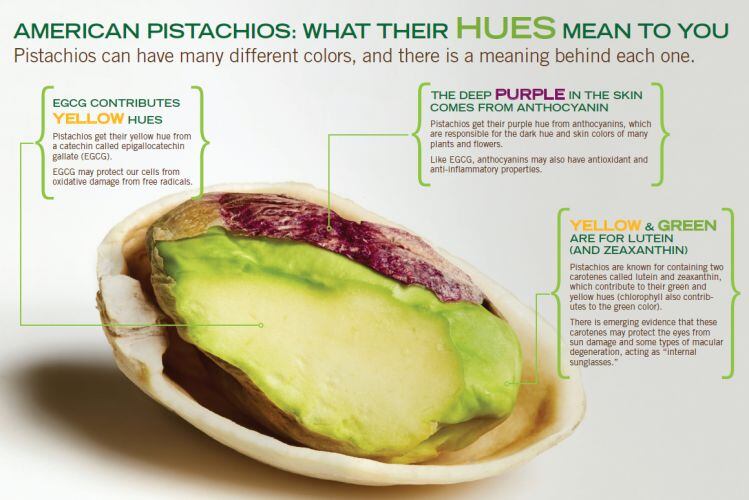
‘As far as we know, this is the only American-grown nut that is a complete protein’
From a food industry perspective, however, recent research showing that pistachios have a digestible indispensable amino acid score (DIAAS) and a protein digestibility corrected amino acid score (PDCAAS) greater than 75 - qualifying them as a good source of protein – is equally exciting, said Hirigoyen(roasted pistachios have a PDCAAS of 81 and a DIAAS score of 83).
“Pistachios are one of the few sources of plant protein that is classified as a complete protein, with adequate amounts of all nine essential amino acids for those five years and older. That’s a gamechanger," claimed Hirigoyen. "As far as we know, this is the only American-grown nut that is a complete protein, which is super important when people are trying to get more of their protein from plant sources. Plus it doesn’t require cooking [unlike soybeans, yellow peas, etc].”
She added: “Another thing that consumers really like about pistachios is that they are the lowest fat nut and you get 49 nuts per serving, which is more than any other nut, plus they are very filling because they have so much fiber. If you eat them out of the shell, it also slows you down so you are less likely to overeat.”
*American Pistachio Growers is a non-profit trade association representing pistachio growers, processors and industry partners in California, Arizona and New Mexico.

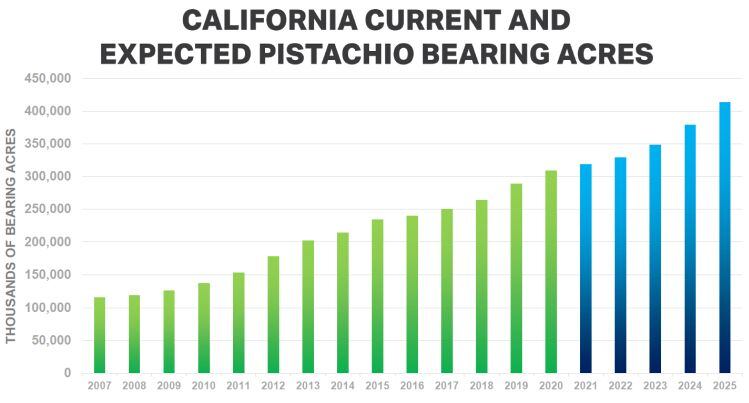
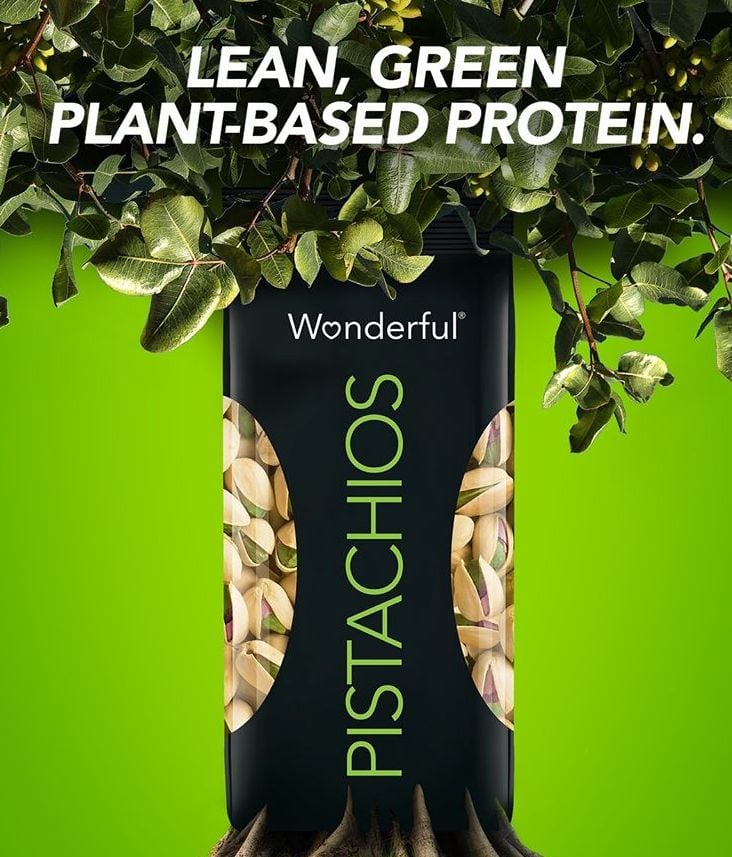
Capitalizing on new research showing that pistachios are a good source of protein, Wonderful Pistachios recently launched a multimillion-dollar marketing campaign arguing that “the best protein is grown on trees, not bred or developed in a lab.”
The campaign “will ensure consumers know Wonderful Pistachios is among the highest protein snack nuts, and, unlike meat, protein-powered pistachios are naturally cholesterol free and offer fiber.”

